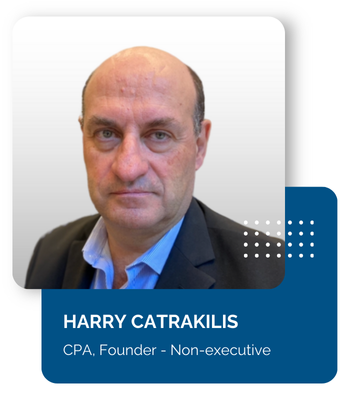Celebrating Rockstars: Why Elevating Top Performers is Key to Success
- August 28, 2024
- Posted by: Harry Catrakilis
- Category: Blog

The Risks of Not Recognizing Top Performers: Merit Based Rewards
In this blog, Harry Catrakilis emphasizes the importance of recognizing and rewarding top performers in the workplace, and gives a crucial warning that failing to do so could negatively impact the company’s overall performance.
“Recognizing and rewarding those who consistently go above and beyond—the “rockstars” of our teams—is more important than ever, though it seems to have gone out of favor in today’s world. These individuals set the standard for excellence, driving innovation and pushing the boundaries of what’s possible. When we celebrate and uplift these top performers, we’re not only acknowledging their hard work but also inspiring others to reach their full potential. This approach, deeply rooted in traditional American business values, is essential for maintaining a culture of excellence and ensuring long-term success.
There are two critical issues that arise when organizations fail to reward their top performers appropriately. First, as the saying goes, “the pie is only so big.” In other words, there is a finite amount of resources to distribute among employees. If a company continually adds inefficiencies, such as rewarding underperformers equally or failing to manage low productivity, it diminishes the share of rewards available for high achievers. Over time, this can create a scenario where top performers receive less recognition and compensation, despite contributing significantly more to the company’s success.
Consider a company that starts with 10 employees, seven of whom are ambitious and driven. The culture of excellence is strong, and the resources available to reward high performers are ample. But as the company grows and hires more employees, the ratio of high performers to low performers may shift. Now, in a team of 20, half the staff might not be delivering at an exceptional level. The resources that could have been used to reward the rockstars are now being spread thin to accommodate those who contribute less.
This not only dilutes the rewards for top performers but also fosters an environment where mediocrity is tolerated. This is why it makes sense to proportionally reward employees based on their contributions to the company.
The second issue is that high performers will leave if they aren’t adequately rewarded. Imagine a situation where a star athlete like LeBron James is not compensated according to his contributions. It’s only a matter of time before he leaves for a team that appreciates and rewards his talent appropriately. The same logic applies to top performers in the business world. If they aren’t recognized and compensated for their exceptional efforts, they will seek opportunities elsewhere—organizations that truly value and reward their contributions.
This scenario presents a significant risk for companies. When top performers leave, they take with them not only their skills and expertise but also the drive and energy that inspire others to perform at their best. Losing rockstars can lead to a decline in overall performance, as remaining employees may no longer see the benefit of going the extra mile. The result is a company that slides from excellence into mediocrity or worse, a downward spiral from which it may be difficult to recover.
However, in today’s environment, some may view this approach as unfair, particularly if they feel overshadowed or threatened by their higher-achieving peers. While it may seem easier to level the playing field and avoid hurting feelings, doing so result in these consequences. Managers play a crucial role in navigating this challenge. They need to make the tough call to compensate employees unequally, reflecting their contributions to the company’s success.
Ultimately, prioritizing and rewarding top performers is crucial for fostering a culture of growth and continuous improvement, and its essential for maintaining a competitive edge. It’s about recognizing that unequal contributions warrant unequal rewards and that this approach is key to driving innovation and long-term success. By making the decision to elevate our rockstars, we not only honor traditional American business values but also inspire others to reach new heights, ensuring that our best talent remains motivated, engaged, and loyal to the company. If we ignore this principle, we risk not only losing our best talent but also diminishing the very foundation of what makes a company great.” -Harry Catrakilis
The above article only intends to provide general information and reflection. It is not designed to provide specific advice or recommendations for any individual. It does not give personalized tax, financial, or other business and professional advice. Before taking any form of action, you should consult a financial professional who understands your particular situation. CKH Group will not be held liable for any harm/errors/claims arising from the blog. Whilst every effort has been taken to ensure the accuracy of the contents, we will not be held accountable for any changes that are beyond our control.
About the Author
Harry Catrakilis has over 30 years of experience in the practice of public accounting, corporate financial management, and investment banking. He was managing partner of CKH from 2003 until summer of 2018 when main operations were passed on to CEO Nico Meyer. This blog was written by and is the candid reflections of Harry Catrakilis.

